Resources
An undergraduate liberal arts education can help students be not simply shaped by tradition but also shapers of tradition. Specifically, undergraduate theological education, aimed at ministry preparation in a liberal arts setting, can seek to graduate students who are responsible shapers of the traditions that shape them, that is, who are tradents. The work of a tradent involves active engagement that requires skills and capacities well beyond simply passing on the past formulations of a tradition. The pedagogical question, then, is how to engage in undergraduate theological education if this image of the tradent is what we have in mind for our students. Three aspects of this image can serve as pervasive or recurrent themes across the structure of a major or program. One aspect is the interpretive nature of the tradent's work, a second is facility with traditions, and a third is the creative, constructive work of thinking theologically. Whatever particular traditions characterize a department's context, the image of students as tradents can help focus pedagogical reflection on the department's work: teaching students as shapers of the traditions that shape them.
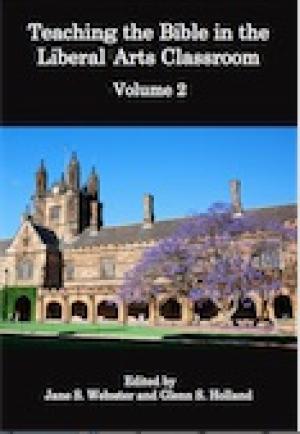
Click Here for Book Review Abstract: Eugene V. Gallagher, Rosemary Park Professor of Religious Studies at Connecticut College, writes: ‘In a context where the general value of the Humanities has increasingly come under question by those who see a college education as necessarily being directly tied to the first job that students will have after they graduate, an ability to make a vigorous case about the contribution of studying the Bible to any college student’s education is crucial for any teacher’. This second collection of essays edited by Jane Webster and Glenn Holland seeks not only to promote the role of biblical studies in an undergraduate liberal arts education, but also to suggest strategies and approaches for teaching the Bible in a range of academic situations. Combining the theoretical and the practical, this volume will be another useful source of guidance and support for teachers of biblical studies at any point in their professional careers. (From the Publisher)
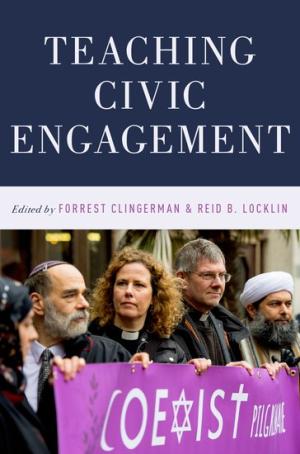
Click Here for Book Review Abstract: Using a new model focused on four core capacities-intellectual complexity, social location, empathetic accountability, and motivated action--Teaching Civic Engagement explores the significance of religious studies in fostering a vibrant, just, and democratic civic order. In the first section of the book, contributors detail this theoretical model and offer an initial application to the sources and methods that already define much teaching in the disciplines of religious studies and theology. A second section offers chapters focused on specific strategies for teaching civic engagement in religion classrooms, including traditional textual studies, reflective writing, community-based learning, field trips, media analysis, ethnographic methods, direct community engagement and a reflective practice of "ascetic withdrawal." The final section of the volume explores theoretical issues, including the delimitation of the "civic" as a category, connections between local and global in the civic project, the question of political advocacy in the classroom, and the role of normative commitments. Collectively these chapters illustrate the real possibility of connecting the scholarly study of religion with the societies in which we, our students, and our institutions exist. The contributing authors model new ways of engaging questions of civic belonging and social activism in the religion classroom, belying the stereotype of the ivory tower intellectual. (From the Publisher)
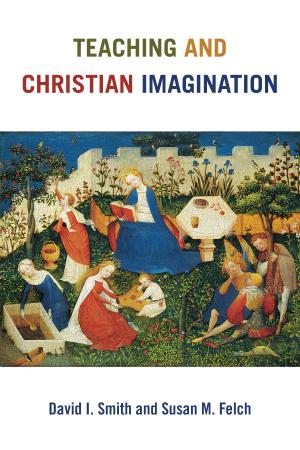
Click Here for Book Review Abstract: This book offers an energizing Christian vision for the art of teaching. The authors - experienced teachers themselves - encourage teacher-readers to reanimate their work by imagining it differently. David Smith and Susan Felch, along with Barbara Carvill, Kurt Schaefer, Timothy Steele, and John Witvliet, creatively use three metaphors - journeys and pilgrimages, gardens and wilderness, buildings and walls - to illuminate a fresh vision of teaching and learning. Stretching beyond familiar clichés, they infuse these metaphors with rich biblical echoes and theological resonances that will inform and inspire Christian teachers everywhere. (From the Publisher)
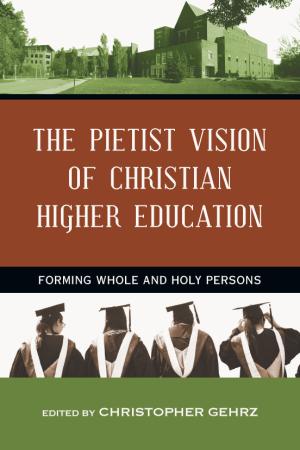
Click Here for Book Review Abstract: Pietism has long been ignored in evangelical scholarship. This is especially the case in the field of Christian higher education, which is dominated by thinkers in the Reformed tradition and complicated by the association of Pietism with anti-intellectualism. The irony is that Pietism from the beginning "was intimately bound up with education," according to Diarmaid MacCulloch. But until now there has not been a single work dedicated to exploring a distinctively Pietist vision for higher education. In this groundbreaking volume edited by Christopher Gehrz, scholars associated with the Pietist tradition reflect on the Pietist approach to education. Key themes include holistic formation, humility and openmindedness, the love of neighbor, concern for the common good and spiritual maturity. Pietism sees the Christian college as a place that forms whole and holy persons. In a pluralistic and polarized society, such a vision is needed now more than ever. (From the Publisher)
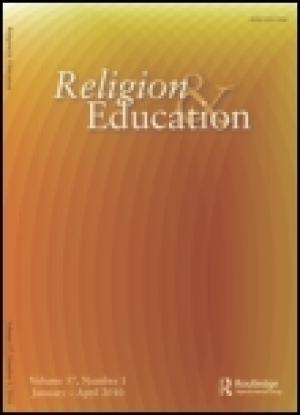
Journal Issue.
Contemplative Studies—meaning both standard “third-person” study of contemplative traditions in history and various cultures as well as actual “first-person” practice of contemplative exercises as part of coursework—is a new field in academia, and aspects have been controversial in some quarters, seen as not completely compatible with the rigorous “critical inquiry” of liberal arts study. While there are agendas within contemplative studies (CS) that go beyond the traditional questions and issues of liberal education, I want to argue that CS has, for a number of reasons, a place right at the heart of such inquiry. CS can be approached from many disciplines, including psychology, medicine, and neuroscience, as well as literature and visual, fine, and performing arts, but here I will focus on its place in liberal arts generally, and in religious studies specifically.
White Paper and the Working Group Papers for a 2008 Teagle funded conference with participants from Bucknell University, Macalester College, Vassar College, and Williams College.
 Asking: how secular assumptions both enable and limit the questions of meaning and purpose that are central to liberal arts education. 
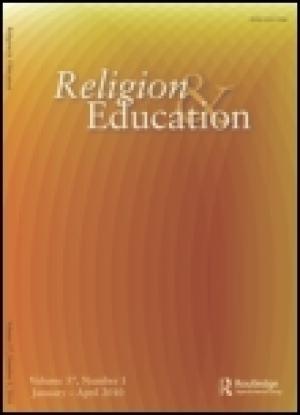
Journal Issue.
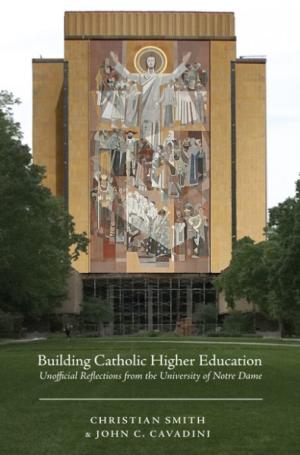
Click Here for Book Review Abstract: American Catholic universities and colleges are wrestling today with how to develop in ways that faithfully serve their mission in Catholic higher education without either secularizing or becoming sectarian. Major challenges are faced when trying to simultaneously build and sustain excellence in undergraduate teaching, strengthen faculty research and publishing, and deepen the authentically Catholic character of education. This book uses the particular case of the University of Notre Dame to raise larger issues, to make substantive proposals, and thus to contribute to a national conversation affecting all Catholic universities and colleges in the United States (and perhaps beyond) today. Its arguments focus particularly on challenging questions around the recruitment, hiring, and formation of faculty in Catholic universities and colleges. (From the Publisher)